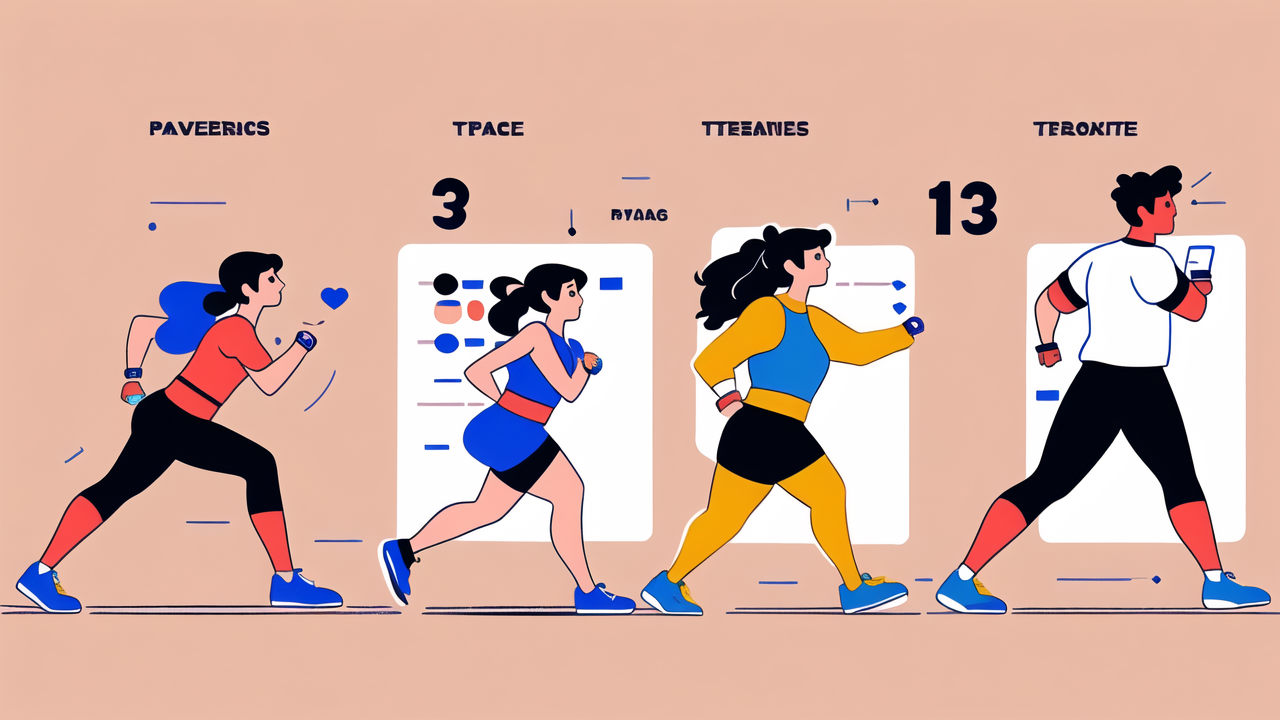Understanding the Importance of Body Measurement Tools in Fitness
The Role of Smart Watches in Personal Fitness
Smart watches have become essential tools for fitness enthusiasts. They offer a wide range of features to track your health and fitness. These devices can monitor your heart rate, count steps, and measure calories burned. Some can even track your sleep patterns and stress levels.

Smart watches provide real-time data during workouts. This helps you stay in your target heart rate zone. They also offer GPS tracking for outdoor activities like running or cycling. Many smart watches can recognize different types of exercises automatically.
These devices sync with your smartphone. This allows you to view your fitness data in more detail. You can set goals, join challenges, and share your progress with friends. Smart watches make it easier to stay motivated and accountable in your fitness journey.
Why Accurate Body Measurements Matter for Fitness Enthusiasts
Accurate body measurements are crucial for tracking fitness progress. They help you understand how your body is changing over time. This information is vital for setting realistic goals and adjusting your workout plan.
Body measurements go beyond just weight. They include metrics like body fat percentage, muscle mass, and bone density. These numbers give a more complete picture of your health. For example, you might not see changes on the scale, but your body composition could be improving.
Accurate measurements help you tailor your nutrition and exercise plans. They can reveal areas that need more focus. Regular tracking allows you to see trends and make informed decisions about your fitness routine.
The Best Smart Watches for Advanced Fitness Metrics
Comparing Top Smartwatches for Body Measurements
Several smart watches excel in providing advanced body measurements. The Apple Watch Series 6 offers features like blood oxygen monitoring and ECG. It also has a wide range of fitness tracking options.

The Garmin Fenix 6 Pro is popular among serious athletes. It provides detailed metrics for various sports. This watch can measure your VO2 max and estimate your fitness age.
Fitbit Sense is another top choice for health tracking. It includes stress management tools and skin temperature sensing. The watch also offers detailed sleep analysis and a daily readiness score.
Samsung Galaxy Watch 3 combines style with fitness features. It provides running analysis and can track over 40 different workouts. The watch also offers blood pressure monitoring in some regions.
Features to Look for in a Fitness-Focused Smartwatch
When choosing a fitness-focused smartwatch, consider these key features:
- Heart rate monitoring: Look for continuous tracking and zone notifications.
- GPS: Essential for accurate distance and pace tracking in outdoor activities.
- Water resistance: Important for swimmers or those who exercise in wet conditions.
- Battery life: Longer battery life is crucial for extended workouts and multi-day events.
- Body composition analysis: Some watches can measure body fat percentage and muscle mass.
- Sleep tracking: Quality sleep is vital for recovery and overall fitness.
- Stress monitoring: This feature can help you balance your training and recovery.
- Compatibility: Ensure the watch works with your smartphone and preferred fitness apps.
- Customizable workout modes: Look for watches that let you create and track specific exercises.
- Recovery metrics: Features like training load and recovery time can help prevent overtraining.
Integrating Your Smartwatch with Fitness Apps and Platforms
Integrating your smartwatch with fitness apps enhances your tracking experience. Most watches sync with their brand's app, like Garmin Connect or Fitbit. These apps provide detailed insights and long-term trend analysis.
Many smartwatches also work with popular third-party apps. Strava is great for runners and cyclists. MyFitnessPal can help with nutrition tracking. Apple Health and Google Fit offer comprehensive health dashboards.
Some watches allow you to control music apps during workouts. Others can connect to smart gym equipment for more accurate tracking. Look for a watch that integrates well with the apps and platforms you already use.
Leveraging Fitness Data for Maximum Improvement
Using Measurements to Inform Training Regimens
Smart watch data can greatly improve your training regimen. Heart rate data helps you understand your exercise intensity. You can use this to ensure you're working in the right zones for your goals.

GPS data is useful for pacing in endurance sports. It can help you train more efficiently and avoid burnout. Sleep and recovery metrics guide you in balancing workout intensity with rest.
Body composition measurements can inform your strength training plan. They help you track muscle gain and fat loss more accurately than weight alone. Use this data to adjust your workouts and nutrition for optimal results.
Tracking Progress and Adjusting Strategies
Consistent tracking is key to long-term fitness success. Smart watches make it easy to log workouts and monitor trends. Regular check-ins with your data can reveal what's working and what isn't.
Set benchmarks and reassess your goals regularly based on your progress. If you're not seeing results, your watch data can help identify why. Maybe you're not pushing hard enough in workouts, or not getting enough recovery time.
Use your watch's features to set new challenges. Many devices offer virtual races or achievement badges. These can provide extra motivation to push your limits and try new activities.
The Impact of Real-Time Data on Fitness Outcomes
Real-time data from smart watches can significantly improve your workout quality. Heart rate alerts help you maintain the right intensity. This ensures you're working hard enough to see results, but not overexerting yourself.
Pace and distance tracking in real-time allows for better race strategies. You can adjust your effort on the go to hit your target times. Some watches offer running power metrics, helping you maintain consistent effort on varied terrain.
Stress and recovery scores can guide your daily workout choices. If your watch shows high stress or poor recovery, you might opt for a lighter session. This adaptive approach can lead to better long-term fitness outcomes and reduce injury risk.
In conclusion, smart watches with advanced body measurement features are powerful tools for fitness. They provide valuable data to inform your training, track progress, and optimize performance. By choosing the right watch and leveraging its features, you can maximize your fitness goals and achieve better results.




Leave a comment
This site is protected by hCaptcha and the hCaptcha Privacy Policy and Terms of Service apply.